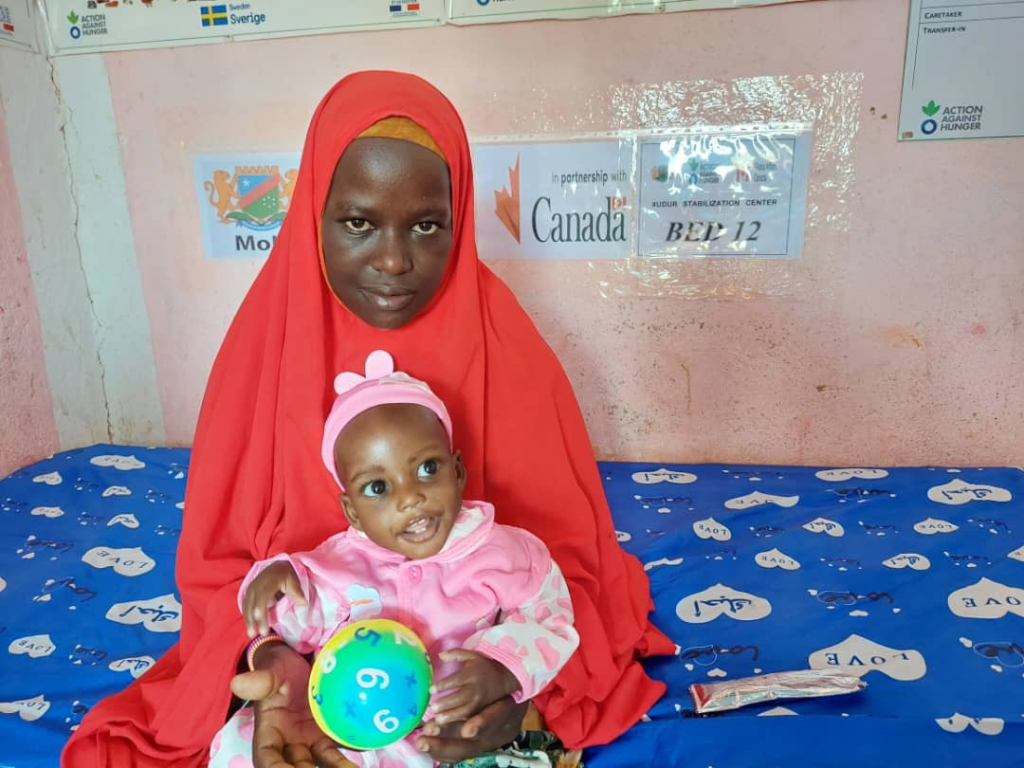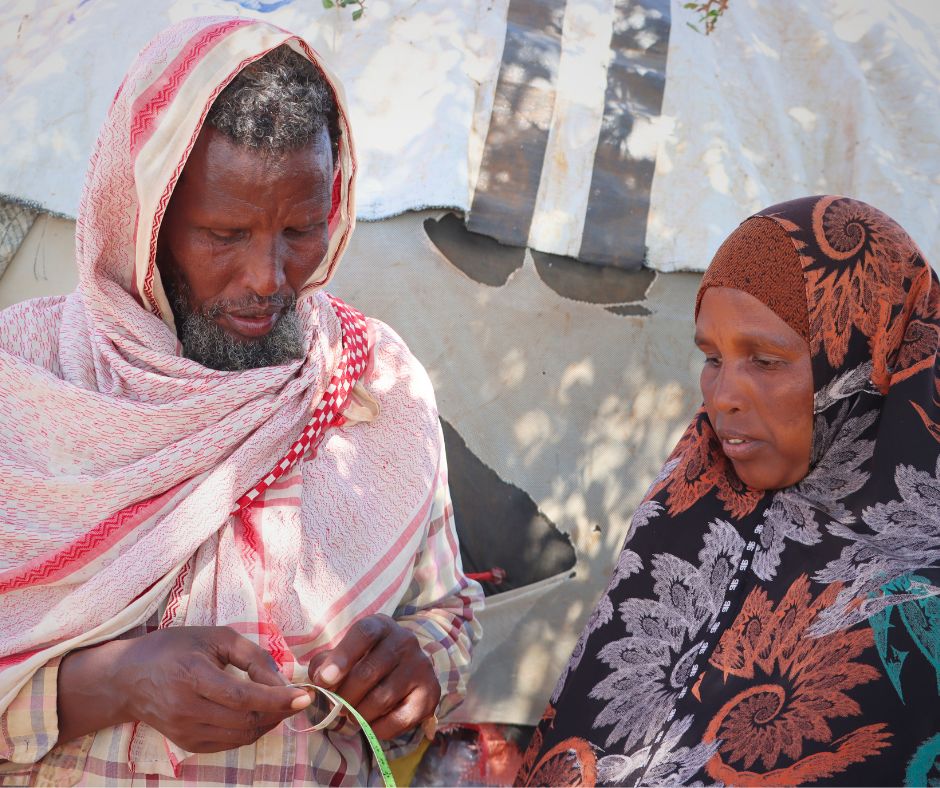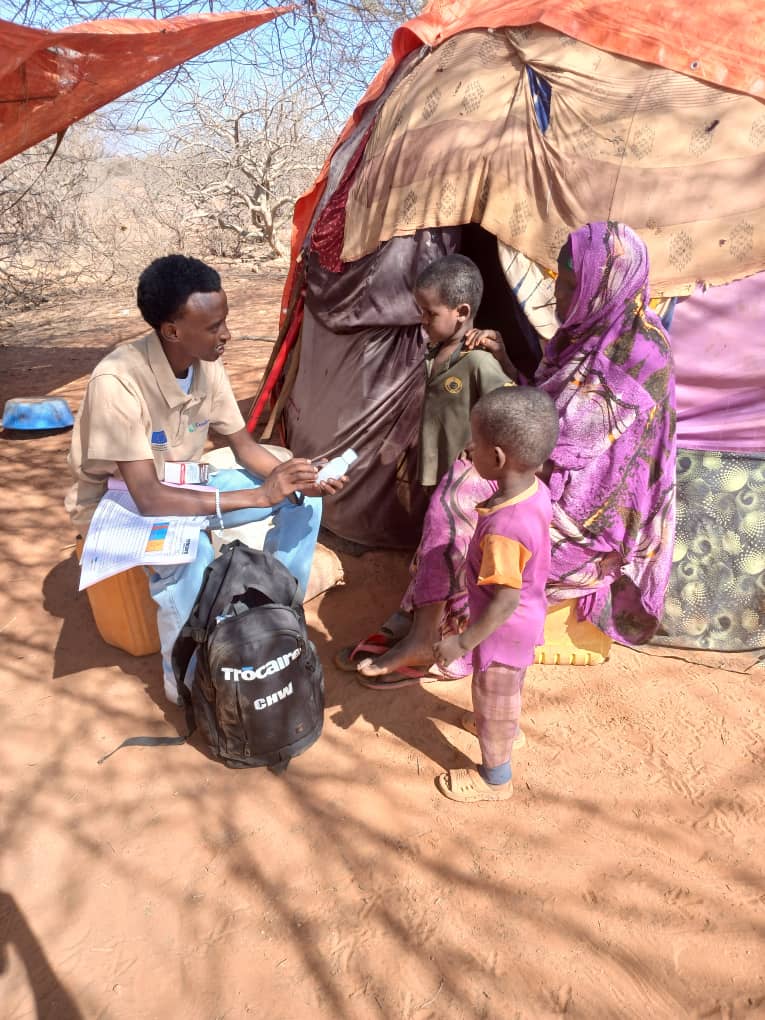On 15th August 2022, Maynuun Nuunow Hassanow, took her 10-month-old son, Isse Ismail to a mobile outreach site near Werow village in Hudur district to receive medication and ready-to-use therapeutic food, having walked for 2 hours to get to the site. Isse’s state of severe acute malnutrition (SAM) complicated by illness necessitated admission to the stabilization center for nutritional and clinical management. Maynuun and Isse were transported by the health workers to the health facility, where the child was admitted. Caafimaad plus consortium lead partner, Action Against Hunger supports the mobile outreach teams through EU funding and the stabilization center through GAC funding.
After a week of receiving medication and therapeutic milk, Isse resumed regular feeding, and started to eat solids, including the plummy nuts. His jovial mood and Maynuun’s grins attest to the fact that Isse has greatly improved, and is now able to play while sitting perfectly upright. “My child’s health wasn’t good for the last week and we had no money for treatment. My kid is now a man; we can’t be more grateful,” she said. Isse will go on to the next levels of care, which include an outpatient therapeutic program and the targeted supplementary feeding program, where he will be given plummy nuts to take in order to gain more weight and avoid relapse.

Meynuun’s family are seasonal farmers in the area around Werow village, but since 2019’s locust invasion in the Horn of Africa, their land has not produced any food. When half a sack of maize and a few glasses of beans purchased by her husband ran out, she and her children struggled to find enough food to eat for the last five months. The family now relies on the kindness of other family members who have been through a similar harsh experience. Maynun’s husband, Ismail Hassan collects firewood, which he transports to the market on the back of his donkey for sale. With food prices increasing by more than 50% in Somalia since the end of 2021, many families have been struggling to access two meals a day regularly. Meynuun stated she “struggled to breastfeed” Isse several times, because of heartache resulting from breastfeeding Isse on an empty stomach.
The residents of Hudur District in Bakool Region face a plethora of challenges resulting from protracted drought caused by persistent failure of rainfall, and insecurity by non-state actors, including blockade of entire villages. The blockade of road access to Hudur means that aid agencies operating in the district have to fly in their supplies, a costly and unsustainable venture. Nomadic and rural populations affected by drought and conflict are put in a very precarious position where food and medical supplies at are cut off periodically when conflict escalates.
Action Against Hunger, the Lead partner for Caafimaad Plus Consortium deploys community health workers (CHW) to implement community case management strategies such as ICCM and Family-led MUAC, as well as mobile outreach teams to provide critical aid to people in hard-to-reach locations with limited access to life-saving health and nutrition services. EU Humanitarian Aid has also provided much-needed airbridge service in the months of July through September to pre-position life-saving medical, nutrition, and WASH supplies to hard-to-reach areas supported by the Caafimaad Plus consortium. This was very critical in meeting the growing need for emergency supplies in similar districts in Bakool, Bay, Mudug, and Gedo regions.








